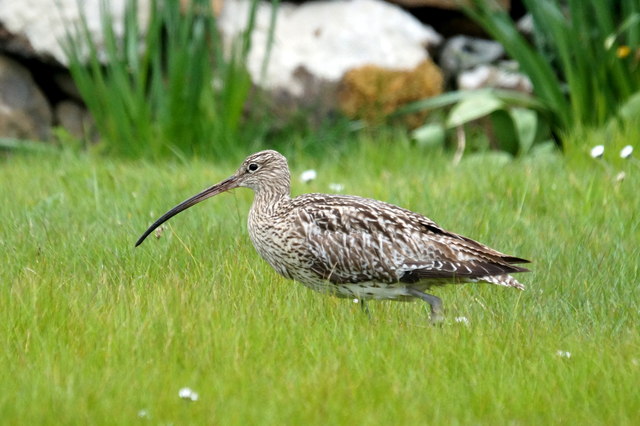June 6th, 2019
Earlier this year the ‘Farming Independent’, an off-shoot of
the Irish Independent newspaper, declared that ‘Origin Green’, the marketing
programme of state-body An Bord Bia, had failed to deliver for farmers.
Since its inception in 2013, Origin Green has been the focus of environmental ire for its spurious claims that Irish agriculture was harmonious with nature.
But now the headline of the mainstream farming press proclaimed that ‘Greenwashing’ could backfire on farming’ – with the warning coming from Teagasc
Teagasc is the state-funded agricultural advisory board and
many of us found it strange that they would be warning of greenwashing after
spending the past six years full square behind Ireland’s agricultural expansion
plans and all the pollution and extinction that has come with it.
So is greenwashing backfiring? Judging by the recent ‘Bloom’
food and gardening festival in Dublin’s Phoenix Park one could only conclude
that our state agencies believe there is life in the old dog yet.
The Office of Public Works surely took the prize for the greatest
set of cojones – their tent at the festival featured a lush display of greenery
with a backdrop proclaiming “Safeguarding Our Nation’s Biodiversity”.
Last December the Irish Wildlife Trust found that the OPW had unlawfully excavated the River Newport Special Area of Conservation in Limerick, without the required permissions, something which led to the destruction of salmon habitat and the likely spread of alien invasive species.
Their imposition of hard engineering solutions has
transformed the West Cork towns of Bandon, Clonakilty and Skibbereen in recent
years by turning local water courses into cement-lined gutters.
Lord help us if their job is now also to ‘safeguard our nation’s biodiversity’. I’d sooner let the Pied Piper babysit my children.
Meanwhile at the ‘Naturally Driven’ Bord na Móna podium
their display of no less than 20 different compost products were all-bar-one
peat-based.
Excavating our peatlands so we can grow mushrooms and
petunias remains central to the Bord na Móna business plan despite the fact
that keeping the peat in the ground and rewilding the bogs is the most
braindead first move in tackling our climate and biodiversity crises.
But it doesn’t stop there. Bord Iasciagh Mhara, another
state body which for decades has been subsidising the emptying of our oceans,
is now claiming that “sustainability is central to BIM’s strategy and is the
driving force for men and women in the seafood industry in Ireland”.
They’ve hopped on the marine plastic bandwagon, ignoring the
fact that fishing and over-exploitation of marine life is the greatest threat
to our oceans by far.
Last week, the Department of Agriculture released their
regular forestry review, with lots of images of children planting trees or
views of spectacular native woodlands – when we all know that the reality is
‘zombie forests’ of polluting conifer plantations. T
There can be no doubt but that the continued deployment of
greenwashing remains a central plank of the government’s policy to hoodwink the
public into believing that all is well in the countryside.
Following the Farming Independent’s headline, a debate
ensued on Twitter over whether Origin Green should be scrapped altogether (as I
believe should happen) or given more time to build on the work it has done.
At worst, its supporters claim, it has set farms on a
‘journey’ and we should build on its progress. This argument should be read for
what it is – a call for business as usual. There has been no progress since
Origin Green was launched – greenhouse gases and ammonia emissions are up,
water pollution is up, biodiversity continues to be pushed over the edge.
Actually, it would be wrong to think that Origin Green was merely ineffective – it is much worse than that. It is, in fact, a greater threat than all these insidious pressures precisely because its marketing is so effective.

Last month the National Parks and Wildlife Service (NPWS)
submitted Ireland’s 6th report to the UN’s Convention on Biological Diversity,
an international accord dating back to the Earth Summit in Rio de Janeiro way
back in 1992.
Unusually for an NPWS report its language was strong and
stark: we are failing to stem the haemorrhaging of nature in Ireland and only a
“transformational change” in our approach will reverse this.
Deep within its pages it reports on one of the Convention’s
objectives: ‘to increase awareness and appreciation of biodiversity’. The NPWS
reported that an overwhelming 89 per cent of Irish people believe that loss of
species is “very serious” or “fairly serious”.
And yet a much lower 44 per cent of people believed this is
something which affects their local area. Why the disconnect?
The NPWS put it down to “a degree of dissonance and
acceptance of the healthy green image often adopted by farm produce marketing
bodies in Ireland”.
Marketing works. In accepting the central message of Origin
Green, conservation has been set back by at least a decade.
Yet clinging to the rails of the sinking ship still seems
easier than manning the life rafts.
It is why greenwashing is so dangerous, and it is why it remains the message of choice for our government and its agencies.
By Padraic Fogarty
Padraic is a Campaign Officer with the Irish Wildlife Trust and Author of ‘Whittled Away’
The post Greenwashing: The greatest threat to nature? appeared first on Green News Ireland.











